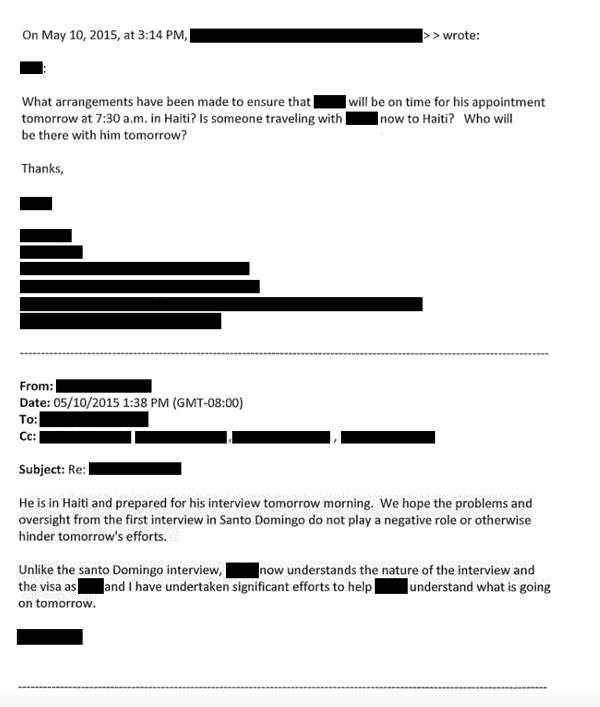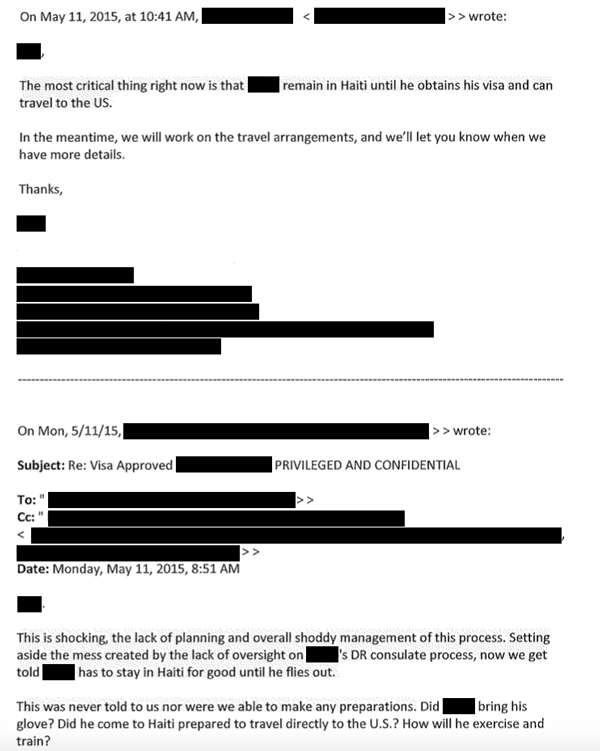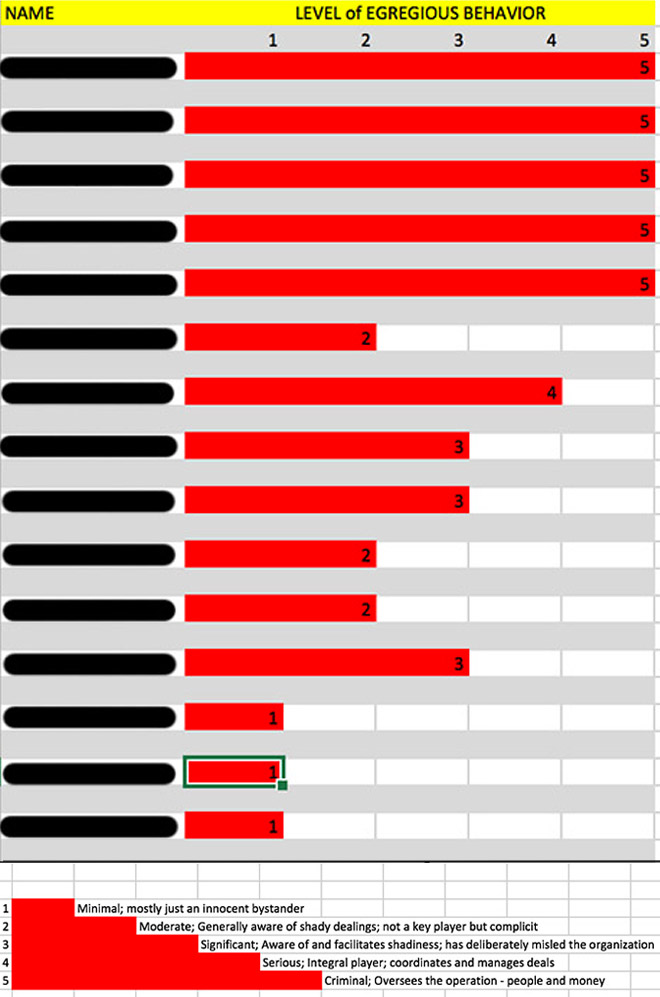Exclusive: The Evidence That Persuaded U.S. Department of Justice to Investigate MLB Recruitment of Foreign Players

Special reporting by Carl Prine.
The migration of Latin American talent to Major League Baseball—particularly players from Cuba—has long been an unseemly business, shrouded in don’t-ask-don’t-tell secrecy. These exodus stories often come suffused with tales of bribes, kickbacks, side deals with smugglers, dubious immigration documents and middlemen skilled at working around immigration laws.
This baseball underbelly might soon be exposed. Sports Illustrated has learned that the U.S. Department of Justice has begun a sweeping probe into possible corruption tied to the recruitment of international players, centered on potential violations of the Foreign Corrupt Practices Act. What’s more, SI has learned that multiple alleged victims of smuggling and human trafficking operations have already given evidence to law enforcement agents or testified before a federal grand jury.
“We had heard there was an investigation coming,” says one top baseball official. “But we didn’t know it was a DOJ matter. I don’t want to speculate, but, yeah, this could get interesting.”
SI has also obtained a thick dossier of documentation that was provided to the FBI at the beginning of the probe. The trove of evidence—the material that largely persuaded the bureau to launch an investigation—includes videotapes, photographs, confidential legal briefs, receipts, copies of player visas and passport documents, internal club emails and private communications by franchise executives in 2015 and 2016.


Collectively, the documents offer a vivid window into both this netherworld and the thermodynamics of the operation: How Caribbean smugglers traffic Cuban nationals to American soil, using third-country way stations. How the underground pipeline ferries Cuban players to stash houses in countries like Haiti and Mexico before they can seek lucrative contracts with MLB clubs. How teams interact with buscones, the unregulated street-level agents who often take a financial stake in Latin American players.
The dossier given to the FBI suggests the extent to which some MLB personnel are aware of—and brazenly discuss—this unscrupulous culture and the potential for corruption. While both the league office and other teams are mentioned in the files obtained by SI, the Los Angeles Dodgers, a franchise with extensive scouting and development operations in the Caribbean, figure most prominently in the dossier:
— One particularly remarkable document shows that Dodgers executives in 2015 went so far as to develop a database that measured the perceived “level of egregious behavior” displayed by 15 of their own employees in Latin America. That is, using a scale of 1 to 5—“innocent bystander” to “criminal”—front-office executives assessed their own staff’s level of corruption. Five employees garnered a “criminal” rating.

— Internal communications by the Dodgers show concerns about what team officials called a “mafia” entrenched in their operations in the Caribbean and Venezuela, including a key employee who dealt “with the agents and buscones” and was “unbelievably corrupt.” Other personnel were suspected of being tied to “altered books” or “shady dealings,” according to the documents.
— There is an additional reference to how the Dodgers “f-----” over a prominent agent by signing an international player before the agent could secure him as a client.
— The dossier also appears to describe efforts to circumvent federal laws and MLB rules requiring Cuban players to establish residency in another country before negotiating and signing with a team. (Because of the U.S. embargo of Cuba, Cuban players cannot enter the U.S. directly under current immigration law. Yasiel Puig, the Dodgers’ star outfielder from Cuba, famously spent a month in a Mexican hotel room before he found safe passage to the United States in 2012.) Among those efforts to circumvent, the dossier includes a transcript of a Nov. 21, 2015, text message conversation between two Dodgers executives in which they discuss the need to “shred” a contract signed with a player before MLB had approved the document. There are also indications that dates on other official documents were doctored before they were forwarded to the MLB office.

***
Andrew Friedman, who has been the Dodgers president of baseball operations since October 2014, did not return messages seeking comment. Nor did Gabe Kapler—currently the Phillies’ manager—who was the Dodgers’ director of player development between ’14 and ’17. Last Friday, a Dodgers spokesman referred all questions to Major League Baseball officials in New York City. The next day, outside counsel David Schindler instructed SI to direct further requests for comment to him. Schindler is a partner at the firm Latham & Watkins; per his bio, he “focuses on the defense of white collar and government investigations.”
Sources told SI that the probe began when a whistle-blowing MLB insider provided the FBI with information last year during spring training. The case eventually landed in Washington D.C. where the Fraud Section of the Department of Justice is headquartered. Those prosecutors oversee enforcement of the Foreign Corrupt Practices Act, which outlaws the bribing or inducement of foreign officials to commit acts in violation of their lawful duties. The law also bans the use of corrupt efforts to secure an improper advantage to obtain or retain business.
Among the witnesses already subpoenaed: player development staffers with ties to the Atlanta Braves, and Manny Paula, a certified agent and cofounder of the MVP Sports Management and Consulting Agency. No charges are known to have been filed. Reached by telephone, Paula—who is not believed to be a target of the probe, but rather a -victim—said that he received a subpoena and complied with it; he referred all other questions to his Pittsburgh-based attorney, Jay Reisinger, who declined to comment. (The Braves also declined to comment; last November, MLB issued a lifetime ban to their former GM John Coppolella for violating the rules that govern international signings.) In addition to Paula, two other sources confirmed the ongoing investigation, including one who provided evidence to federal prosecutors.
Contacted last week, DOJ spokeswoman Nicole Navas Oxman said, “The Justice Department declines to comment.” Schindler, the Dodgers’ outside counsel, wrote in an email that he had “no knowledge” of any such investigation. For its part, MLB was playing catchup. When reached by SI, spokesman Pat Courtney said, “Major League Baseball has not been contacted by federal authorities regarding an investigation.” That will likely change soon.
